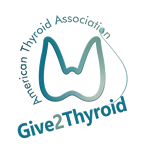Questions and Answers Regarding Legacies and Planned Gifts
Q. What is a Legacy?
A. A legacy is something that is given in order to benefit future generations. In charitable terms, legacies are usually established by bequest or other planned gift method to provide support for a specific program. The support and
name of the donor continue to be associated with the program, providing a form of remembrance.
Q. What are the benefits to a donor of
planned gifts?
A. Planned gifts offer a donor many of the same benefits that an outright gift to a charity provides,such as:
- Charitable tax deduction;
- Avoidance of capital gains tax on appreciated property, securities
and collectibles; - Removal of assets from potential estate taxation;
- Control of where the estate’s “social capital”
is used; - Personal satisfaction in supporting a worthy cause; and
- Recognition for your charitable support while living.
These benefits are possible because the American Thyroid Association is a 501 (c)(3) organization. It enjoys this tax-exempt status by using its resources to support charitable activities that benefit the public good.
Q. What are the advantages to the charity of receiving a planned gift rather
than a conventional donation?
A. The American Thyroid Association benefits from a donor’s planned gift in several distinct ways:
- Planned gifts allow the ATA to highlight the benevolence of
the donor in public forums and in printed media. This has the power to influence
and stimulate others to consider the establishment of a planned
gift. - Planned gifts allow the Association to recognize the donor for his or her gift while living.
- Planned gifts allow an opportunity for dialogue with each donor about gift wishes so that the Association can become a better steward of the gift.
- Planned gifts are usually larger than outright gifts, which in turn enable the Association to do more work that is charitable.
Q. Can you provide a few examples of planned gifts?
A. There are numerous ways to creatively structure a planned gift. A donor’s attorney and/or financial adviser should be consulted to assure that the optimum benefits are realized for the estate and charity.
- The most common form of planned giving is leaving a bequest in one’s will. Charitable bequests reduce the size of the estate and reduce estate taxation.
- Remainder charitable trusts, such as charitable gift annuities or unitrusts are usually established during a donor’s lifetime, providing an immediate tax-deduction, avoidance of capital gains taxation, reduced estate tax at death, and creation of a source of income for the donor’s and/or other family members for life or for a specified period of time. Ultimately, the trust’s residual assets pass to the Association for the purpose outlined by the donor.
- Charitable lead trusts provide a number of unique benefits. These types of trusts are generally used when a donor has assets that are likely to appreciate and the donor wishes to pass these assets to family members with reduced gift and estate tax consequences. Lead trusts are established for a specified period, often ten years. During this period, the charity receives regular distributions from the trust, either a fixed amount (charitable lead annuity) or fluctuating amount (charitable lead unitrust) and the donor pays income taxes on the earnings of the trust, which may be tax deductible. A charitable income tax deduction may also be available when the trust is established.






